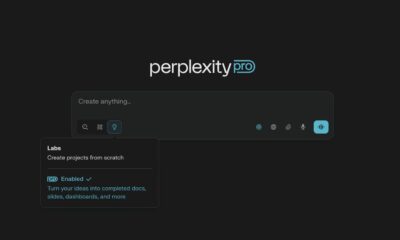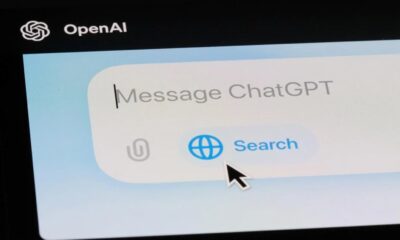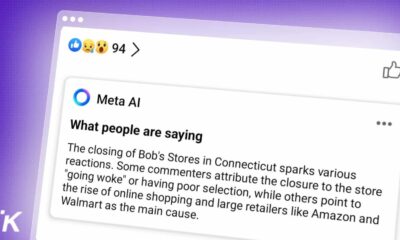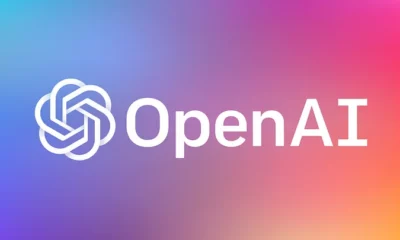AI
AI superintelligence could arrive in a decade: OpenAI CEO Sam Altman
Sam Altman thinks AI is about to get insanely more capable in the next decade.

Just a heads up, if you buy something through our links, we may get a small share of the sale. It’s one of the ways we keep the lights on here. Click here for more.
In a recent essay, OpenAI CEO Sam Altman outlined his vision for an AI-driven future of tech progress and global prosperity, titled “The Intelligence Age.”
Altman suggests that superintelligent AI could emerge within the next decade, stating, “It is possible that we will have superintelligence in a few thousand days (!); it may take longer, but I’m confident we’ll get there.”
OpenAI’s current goal is to create AGI (artificial general intelligence), a term for hypothetical technology that could match human intelligence in performing many tasks without specific training.
In contrast, superintelligence surpasses AGI, and it could be seen as a hypothetical level of machine intelligence that can dramatically outperform humans at any intellectual task, perhaps even to an unfathomable degree.
Altman’s prediction has drawn both interest and skepticism. Computer scientist and frequent AI critic Grady Booch quoted Altman’s “few thousand days” prediction and wrote on X:
“I am so freaking tired of all the AI hype: it has no basis in reality and serves only to inflate valuations, inflame the public, garnet [sic] headlines, and distract from the real work going on in computing.”
In his essay, Altman frames our present era as the dawn of “The Intelligence Age,” the next transformative technology era in human history, following the Stone Age, Agricultural Age, and Industrial Age.
He credits the success of deep learning algorithms as the catalyst for this new era, stating simply: “How did we get to the doorstep of the next leap in prosperity? In three words: deep learning worked.”
The OpenAI chief envisions AI assistants becoming increasingly capable, eventually forming “personal AI teams” that can help individuals accomplish almost anything they can imagine. He predicts AI will enable breakthroughs in education, health care, software development, and other fields.
“If we want to put AI into the hands of as many people as possible,” Altman writes, “We need to drive down the cost of compute and make it abundant (which requires lots of energy and chips). If we don’t build enough infrastructure, AI will be a very limited resource that wars get fought over and that becomes mostly a tool for rich people.”
“We need to act wisely but with conviction. The dawn of the Intelligence Age is a momentous development with very complex and extremely high-stakes challenges. It will not be an entirely positive story, but the upside is so tremendous that we owe it to ourselves, and the future, to figure out how to navigate the risks in front of us,” he writes.
Altman’s vision for the future of AI extends beyond just OpenAI. He believes that AI will become a key component of every product and fservice, much like electricity is today.
“OpenAI CEO Sam Altman says it’s becoming similarly unthinkable for AI-based intelligence to not be baked into every product and service,” according to Salesforce.
OpenAI has already demonstrated this vision in action with the release of a new AI tool that can create and edit images from natural language instructions.
The company hopes that “people love the tool and find it useful,” showcasing how AI can be applied in practical ways to enhance creativity and productivity.
Despite the potential risks and challenges, Altman remains determinedly optimistic about the potential impact artificial intelligence will have on society.
“The bottom line is that democratic AI has a lead over authoritarian AI because our political system has empowered US companies, entrepreneurs and academics,” he wrote in a Washington Post opinion piece.
As AI continues to advance and become more integrated into our lives, the concepts outlined in Altman’s essay will become increasingly relevant.
Whether superintelligence arrives in a few thousand days or takes longer, the trajectory of AI development seems poised to reshape the world profoundly.
As Altman urges, “We need to act wisely but with conviction… It will not be an entirely positive story, but the upside is so tremendous that we owe it to ourselves, and the future, to figure out how to navigate the risks in front of us.”
What do you think about Sam Altman’s vision for the AI future? Or do you think he’s wrong about where AI is headed? Let’s talk in the comments below and make sure to follow us on our Twitter and Facebook for more.





























